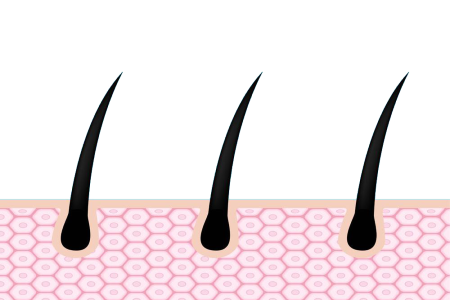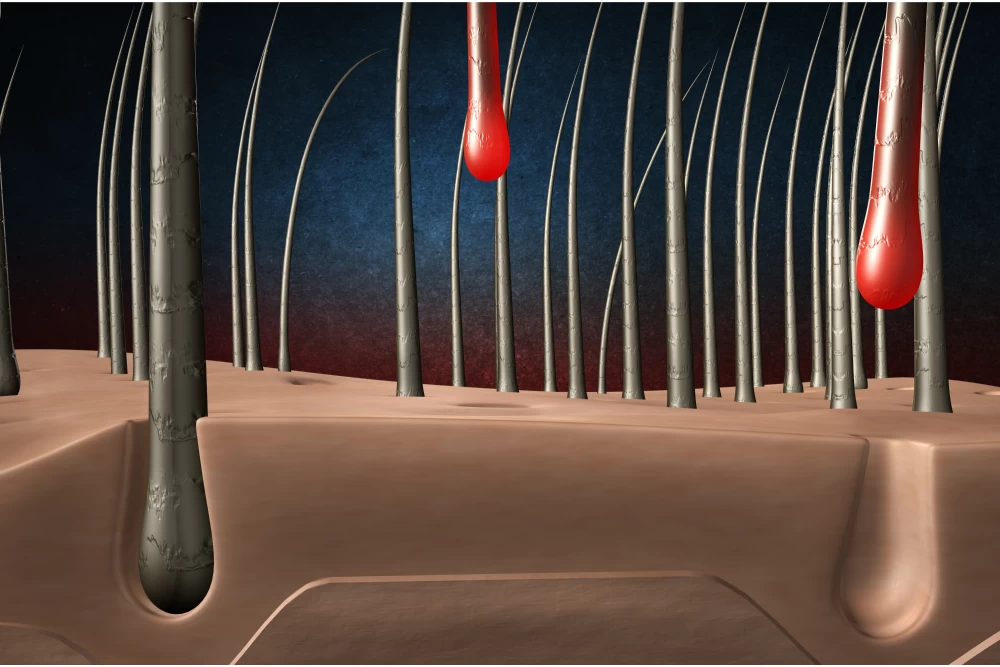
- 2nd May 2023
Table of Contents
How does Intermittent Fasting work?
Intermittent fasting is a method of dieting in which one refrains from eating for set time periods. Many people are adopting this eating style as a means of reducing their body fat percentage. Intermittent fasting, however, has been linked to positive effects on health and wellness, including improved hair growth and quality. Reduced oxidative stress has been linked to the benefits of intermittent fasting for hair. Damage to hair follicles from oxidative stress can result in hair loss or subpar hair quality. Furthermore, increased insulin sensitivity has been associated with intermittent fasting, which may aid in the regulation of hormones that affect hair growth. However, it's also important to remember that intermittent fasting can have negative consequences. Hair health may be negatively affected by extreme calorie restriction during the fasting periods. People thinking about adopting this diet should get the OK from a doctor first, and then make sure they get all the nutrients they need, either from food or supplements.
What are the Hair Loss and Hair Growth Effects?
In recent years, the practise of intermittent fasting has gained popularity as a means of controlling one's weight by alternating periods of eating and fasting. Many, however, overlook the fact that it can also diminish the health of one's hair and its potential for growth. Fasting causes your body to enter survival mode, which includes reducing metabolic processes like hair growth in order to conserve energy. Hair loss or thinning may result from this. Intermittent fasting can also harm your hair by preventing it from absorbing nutrients. You may not be getting enough of the protein, iron, biotin, and other nutrients necessary for healthy hair growth if you restrict your food intake. The lack of this nutrient can cause your hair to become brittle and lifeless. Finally, stress is another possible cause of hair loss when fasting intermittently. Changing one's diet or beginning a new routine can cause a great deal of anxiety for many people. Cortisol, the stress hormone, has been linked to follicular dysfunction, which can manifest as thinning hair or even bald spots.

Causes of Balding During IF
The benefits and drawbacks of the popular diet strategy known as intermittent fasting (IF) are debatable. Some people lose their hair during IF, which is a negative side effect. This is because your body may put other, more important functions ahead of hair growth if you don't get enough calories, leading to thinning and eventual shedding. And because fasting lowers oestrogen levels, it can exacerbate hair loss. Estrogen is crucial for the upkeep of robust hair follicles and smooth skin. Hair follicles may become weak and eventually fall out if this hormone isn't produced in sufficient quantities. A lack of essential nutrients is yet another possible reason for hair loss during IF. Extreme calorie restriction over long periods of time can cause deficiencies in protein, iron, biotin, zinc, and other essential nutrients, which can negatively affect the quality and thickness of your natural hair.
Preventing and Treating Hair Loss Caused by IF
Fasting for set amounts of time at regular intervals is known as intermittent fasting (IF). While intermittent fasting (IF) has been shown to have positive effects on health and weight, it may also have an effect on hair. People who engage in IF frequently experience hair loss due to the potential nutritional deficiencies that can result from not eating enough food during fasting periods. Making sure your hair is getting all the nutrients it needs to grow strong and healthy can help prevent hair loss from IF. Included in this category are the nutrients necessary for healthy hair growth, such as protein, iron, zinc, and biotin. Collagen and biotin are just two of the many dietary supplements that can benefit hair. There are a number of options for dealing with existing hair loss caused by IF. Topical minoxidil is an option because it increases circulation to the scalp and promotes hair growth. Finasteride is another option, as it works by inhibiting the hormone dihydrotestosterone (DHT), which is responsible for male pattern baldness. Individual results may vary based on age, gender, genetics, and other underlying medical conditions that may contribute to thinning or shedding of hairs during intermittent fasting diets, so it's important to talk to your doctor before beginning any treatment plan for hair loss caused by IF.
Healthy Hair Nutritional Advice

Alternating periods of eating and fasting, known as "intermittent fasting," has gained popularity among health nuts. Studies suggest it may have negative effects on hair growth and quality, despite its many advantages. The simple explanation for this is that fasting puts your body into stress from a lack of nutrients, which can have an adverse effect on hair growth. If you want to keep your hair in good shape while intermittent fasting, getting enough protein during your eating periods is essential. Consuming protein-rich foods like eggs, lean meats, fish, and legumes is important for building strong and healthy hair strands. For optimal hair health, it's also important to get plenty of the vitamins and minerals found in whole foods like fruits and vegetables. Finally, it's important not to overdo intermittent fasting, as malnutrition and nutrient deficiencies can cause thinning or balding if fasting episodes are too long or occur too frequently. Keep an eye on how long it's been since your last fast, as some people can't handle 16:8 or alternate-day fasting and end up losing their hair. Before beginning any new diet or lifestyle changes, it is recommended that you speak with your healthcare provider.
Modifications to Your Way of Life
Intermittent fasting is a popular lifestyle change that involves restricting your eating window to promote weight loss and improve overall health. However, some people have reported experiencing hair loss while practising intermittent fasting. This can be due to the stress that fasting puts on the body, which can lead to shedding of hair follicles. Fortunately, this problem can be fixed by not severely restricting calories and making sure to eat well during the allotted time. Hair growth and quality can be affected by a number of lifestyle factors, not just intermittent fasting. Smoking, for instance, has been associated with reduced blood flow to the scalp, which can lead to premature greying and thinning of the hair. The follicles that produce hair can be weakened by chronic stress, which has been linked to increased inflammation and oxidative stress in the body. Healthy hair is a byproduct of adopting healthy lifestyle habits like regular exercise, a balanced diet rich in nutrients like iron and zinc for healthy hair growth, decreased alcohol consumption, and giving up smoking.














